
The Penan of the Belaga, Sarawak, East Malaysia started hill rice planting in the late 1960s, but their knowledge of farming still remains relatively low. They have had years when the harvest has been plentiful and also years when the harvest has been bad. There was no harvest between 2006 and 2007 and only a very small harvest in 2008 and 2009. They, therefore, nowadays still heavily rely on hunting for their living. The Penan of the Belaga go hunting either from their settlement or temporary hunting huts in the forest. They eat almost all creatures both from the forest and the river such as wild boar, deer, monkeys, birds, fish and so forth.
Their relations with animals are surprisingly simple at first glance. The Penan usually avoid animals as much as they can, except for when hunting or catching animals in their daily lives. They have strong taboos concerning animals that have been developed around the treatment of animals. Mistreatment of animals is related to meteolorogical catastorophe such as thunder and lightning, and flooding, which are believed to be caused by supernatural beings (baley).
The Penan of the Belaga nowadays engage in two types of hunting:
(1) one is hunting in the surrounding rainforest between morning and sunset.
(2) the other is hunting in the oil palm plantations at night.
In addition, they sometimes trap small animals (maneu viu) by using materials in the forest.
The Penan are traditionally hunters in the deep jungle. The Penan of the Belaga gradually started to settle or semi-settle in response to the instructions of the Sarawak State Government sometime in the 1960s. The surrounding rainforest had gradually been cleared due to the encroachment of commercial logging into their region in the middle of the 1980s. After the bulk of the trees in the forest were cut down, the oil palm scheme was introduced in 1997. Under the oil palm scheme, all forms of vegetation were cleared. This seems to have further reduced the sources of food supply and cash income .
However, some of the Penan fortunately found that wild boar and other small animals would come to eat the fruit of the oil palm after such trees began to bear large fruit in the early 2000s. In this way, hunting in oil palm plantations at night has recently been added to the traditional hunting in the forest (although they never distinguish one from the other). Hunting in oil palm plantations is characteristic with waiting for and hunting the wild boar that come to eat the oil palm fruit.
Penan hunters usually leave home to hunt in silence. People are expected not to ask where the hunters go or what they are trying to catch. Hunters then return home silently if they successfully obtain game animals. After a while (usually before or after cooking), they describe the hunt. A typical description of hunting in the oil palm plantation is as follows:
Pukun lema taop merem akeu tae jin jebatan ayu kereta tae ton simpan lamin buhei akeu tuun sina akeu tae ke buhei mukat simpan dalem sawit tae avi tong uban tua saau mengisi obat pisit akeu tae rau kediva tae tong sawit ra kaben rau sina akeu menimuk mabui merem ja nalee merip ja pengah ineh mulie tong lamin.
At five o’clock in the evening, I took a logging company car from the bridge to the crossroads under the upper house. I got out of the car there and climbed up the mountain in the oil palm plantation. After a while I reached the spot where we were previously. I put a battery in my torchlight. I started to walk down the hill and reached the left side of the oil palm plantation, where I shot two wild boars that I saw last night. I got one, but the other escaped alive. Then, I returned to our hunting camp.
On the other hand, if they return home without game, they murmur “piah pesaba” (angry words for animals), primarily to let the family members know of their hunting failure.
Iteu ulie amie padie melakau puun ateng menigen saok todok kat selue pemine mena kaan uyau, apah panyek abai telisu bogeh keledet baya buin belengang dek ngelangi saok todok kaan panyek abai telisu bogeh keledet saok tedok kaan baya buin belengang dek ngelangi .
Here I walked back, my brothers, I could not catch any animals, I could not hunt any animals. My father will die, my mother will die ( if I tell a lie). Pig’s ugly nose, Malay who was once a boar, pig’s nose like a hammer’s head, big-eyed deer. Deer’s eyes which shine at night, crocodile, pig, hornbill, fowl cackles. I could not catch any animals. Pig’s ugly nose, Malay who was once a boar, pig’s nose like a hammer’s head, big-eyed deer. Deer’s eyes which shine at night.I could not catch any animals. Crocodile, pig, hornbill, fowl cackles.
“Piah pesaba” can be uttered only when no game animals have been caught after hunting. It partly includes insults to animals: to play with their big nose, big eyes or nose shaped like a hammer’s head. In contrast, the Penan say that they should not utter words such as “piah pesaba” on a daily basis, which are thought to attack or play with animals. After returning from hunting without game, Penan hunters also explain their hunting failure as in the following example. This case is taken from hunting in the rain forest.
Akeu kebai ayu atok tae tong long meru naat ia mabui tong penvangan menimuk mabui jin ju teneng mabui tenimuk dee avi dipee alet tuai maau jin long meru iyeng matai.
I took a canoe downstream and then reached the mouth of the Meru River, when I saw a wild boar on the bank. I shot it from afar. The wild boar bled and then escaped. I followed it to the opposite bank of the Alet River. It was not shot dead.










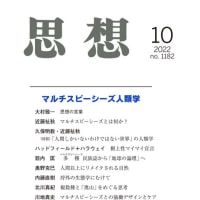
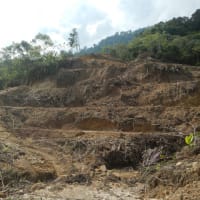
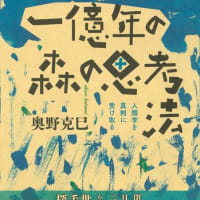
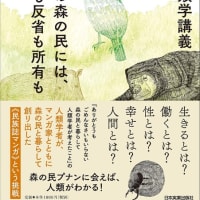
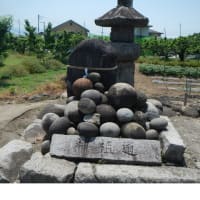
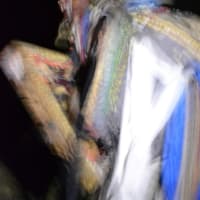
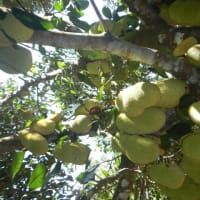
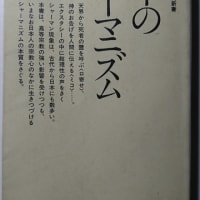

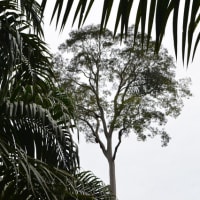
※コメント投稿者のブログIDはブログ作成者のみに通知されます